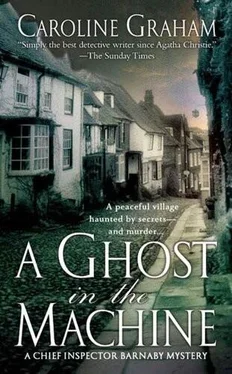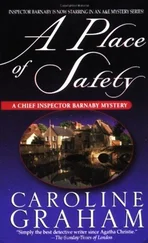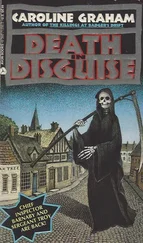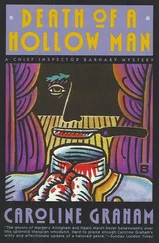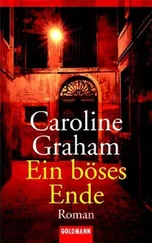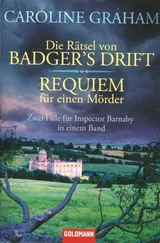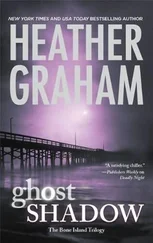The trouble was that three years later, though everything was still going well, she found herself trapped, journeying round and round the same restrictive circuit. Occasionally she was invited to “guest,” as they put it, in a few churches somewhat further afield, which she was happy to do, and also to take part in various “evenings of clairvoyance,” which she always refused. But fame, as experienced by Doris Stokes, who Ava now knew all about, remained elusive. Like most of the other mediums she came across, outside the limited world of spiritual and psychic practice Ava Garret was still a nobody. And the money was no great shakes either.
At this point, perhaps recognising she had drifted somewhat from her glowing representation of an outstanding oracle to her visitors, Ava suddenly stopped speaking. Then, with an artificial start of Eureka-type astonishment she clapped her hands and cried, “How fortunate that we have met. You’ll need advice, of course. Practical, artistic, psychic. I will sit in on your Blithe Spirit rehearsals. No—but me no buts. I won’t hear a word against it. The matter’s settled.”
“Notice how she veered off when you brought up the question of that last visitation?”
“Of course I noticed!”
“No need to be snippy. If it wasn’t for me telling her you were in the business you’d have got zilch.”
“As far as any helpful research is concerned I did get zilch. We heard her life story—”
“Boy,” said Nicolas, chewing on a frangipane, “did we hear her life story.”
“But I couldn’t pin her down as to how the actual experience of transmission felt.”
“Probably indescribable.” He pushed his plate aside. “Like these tarts.”
“Mine’s all right.”
They were in the Secret Garden Tea Rooms, having decided that all that listening had left them in dire need of more refreshment. Sitting at a little window table they watched the world go by. There wasn’t much going on at half-past five on a warm Sunday afternoon. A few people wandered past. Some backpackers sat on the kerb licking ice lollies.
“Let’s walk round a bit before we go and see the folks,” said Cully. “It’s such a lovely day.”
Nicolas went to pay the bill. The proprietress was behind the cash desk. She didn’t put herself out on the charm front. Experience had taught her to recognise those who might become regular customers from the passing trade.
Nicolas, recalling the terraced houses on either side and spotting a brick wall through the café’s rear window asked, faux naïf : “Where is the actual garden, then?”
“That’s the secret, smarty pants.”
Nicolas gave her one of his warmest smiles. “My mother made cakes just like yours.”
“Really?” The sour lemon pucker of her lips loosened slightly.
“Mm.” He retrieved the pound coin he had left under the saucer and slipped it into his pocket. “They were actually cited in the divorce petition.”
As they emerged, hand in hand, into the sunshine Nicolas said, “Whatever happened to have a nice day?”
“Don’t be pathetic. You surely don’t think they mean it?”
“I’ve no problem with people who are insincerely pleasant. It’s the sincerely unpleasant that get up my nose.”
They wandered round the village, unwilling wholeheartedly to admire what Nico described as yucky, picture-postcard kitsch, yet drawn into the quiet, apparent serenity of the place in spite of themselves.
“Take that, for instance.” Nicolas scornfully faced an exquisite, tiny thatched cottage with mullioned windows. “Half a dozen peasants used to live in that six-figure biscuit box. Mud floors, chickens scratching about, water coming through the roof, children in rags…”
“That was then, darling.” Cully took her husband’s hand and led him across the lane, past a vast orchard of apple trees and towards the parish church of St. Anselm’s. “And since when have you cared tuppence for the peasants?”
“True, true.” Nicolas laughed. “Mind, to be fair, I don’t expect they ever cared tuppence for me.”
They wandered around the churchyard, looking for interesting gravestones. Some were quite new and shining, addressing rectangles of sparkling white or green gravel. Others were so old the inscriptions were almost worn away. A few of these were listing dangerously and one had fallen on its back. Some graves, even more ancient, were just gentle bumps in the ground. They were so numerous it was difficult not to walk on them.
“Careful, Nico.”
“What?”
“Look where you’re standing.”
“They won’t know.” But he moved all the same. “God, I am so incredibly glad that I’m not dead.”
“Me too.”
“So utterly overwhelmingly mind-blowingly glad. Imagine, no more first-night parties.”
“Or last-night parties.”
“No more applause.”
“No bacon and eggs at Groucho’s.”
“No Margaritas at Joe Allen’s.”
“Or frocks from Ghost.”
“No sunrise.”
“Or sunsets.”
“No sex.”
“Oh, Nico. Worst of all.”
“I shouldn’t worry. In twenty years’ time they’ll have found a way to keep us immortal.” He turned, looking backwards at a splendid Norman tower. “D’you want to look round?”
“I’d rather go.” Running from the impartial cruelty of time passing Cully was already halfway down the rose-brick path, calling over her shoulder, “It’ll be locked anyway.”
Nicolas caught up with her at the lych-gate. Saw shadows fall across her face as she slipped through. Thought they were caused by leaves in the elm trees. Then was not sure.
“You all right, Mrs. Bradley?”
“Fine.” No Mum and Dad. No terrible meals and touching hints about possible grandchildren. No bear hugs and garden cuttings or surprise presents. No sensible, loving advice…
“Oh, shit. Sorry.”
“Here.” Nicolas offered his hanky and drew her close. “Have a good blow.”
“Sometimes I hate loving people, don’t you?”
“No. Not when you think of the alternative.” He paused. “C’mon let’s hear it for the Lion King.”
Cully trumpeted loudly into the handkerchief. Gently Nicolas wiped her tears away. Then they linked arms and walked back into the street. Just a few yards further it humped itself into a bridge with a little carved parapet. They leaned over together and listened to the fast running water rattling the pebbles. Diamond-bright water; crystal clear.
“We could bottle this,” suggested Nicolas. “Make our fortune.”
“Those sheep are pooing in it.”
“Added minerals.” Nicolas pulled out some loose change before replacing his hanky. “I think we should throw money in. Like people do at the Trevi Fountain.”
“That’s because they want to return, silly.”
But Nicolas threw his money in anyway. He tossed a fistful high into the air and it descended in a glittering shower to lie winking and sparkling on the sandy bed of the stream.
By nightfall every coin had been removed by village children and consequently Nicolas and Cully never returned to Forbes Abbot. On the other hand Cully’s father, a detective chief inspector in the Criminal Investigation Department of nearby Causton, got to know it very well indeed.
Like all villages Forbes Abbot had its down side. There was more to it than the bijou constellation of Barrett homes with their fake leaded windowpanes, swirls of bubble glass and electric carriage lamps. More than the few large, beautiful old houses in their own grounds, the renovated Edwardian terrace and carefully restored nineteenth-century cottages. Unfortunately there were also council houses.
The blessing was that these, of which there were around twenty in the form of a crescent, had been sensibly constructed right on the edge and so could be fairly easily ignored. Of course, they were full of people who would insist on going in and coming out, but most of them appeared to have cars and shopped in bulk at Asda or Tesco, which mainly kept them free of the local Spar. It was grudgingly admitted that nearly all the houses had well-cared-for gardens and clean curtains. Some were even privately owned with fancy front doors and lemon mock stone cladding. Even so, living there, confided the upside residents to each other, definitely constituted a stigma.
Читать дальше
